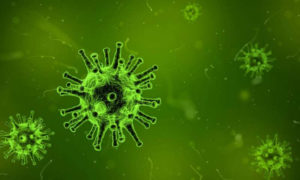A Long but Drunken Life
A new study found that obese mice given massive doses of a substance found in red wine enjoyed improved health and increased longevity. Although the results are promising, a human would have to drink between 750 and 1,500 bottles of wine a day to achieve the dose of resveratrol given to the rodents.
A new study found that obese mice given massive doses of a substance found in red wine enjoyed improved health and increased longevity. Although the results are promising, a human would have to drink between 750 and 1,500 bottles of wine a day to achieve the dose of resveratrol given to the rodents.
Your support matters…New York Times:
Their report, published electronically yesterday in Nature, implies that very large daily doses of resveratrol could offset the unhealthy, high-calorie diet thought to underlie the rising toll of obesity in the United States and elsewhere, if people respond to the drug as mice do.
Resveratrol is found in the skin of grapes and in red wine and is conjectured to be a partial explanation for the French paradox, the puzzling fact that people in France enjoy a high-fat diet yet suffer less heart disease than Americans.
The researchers fed one group of mice a diet in which 60 percent of calories came from fat. The diet started when the mice, all males, were a year old, which is middle-aged in mouse terms. As expected, the mice soon developed signs of impending diabetes, with grossly enlarged livers, and started to die much sooner than mice fed a standard diet.
Another group of mice was fed the identical high-fat diet but with a large daily dose of resveratrol (far larger than a human could get from drinking wine). The resveratrol did not stop them from putting on weight and growing as tubby as the other fat-eating mice. But it averted the high levels of glucose and insulin in the bloodstream, which are warning signs of diabetes, and it kept the mice’s livers at normal size.
Even more striking, the substance sharply extended the mice’s lifetimes. Those fed resveratrol along with the high- fat diet died many months later than the mice on high fat alone, and at the same rate as mice on a standard healthy diet. They had all the pleasures of gluttony but paid none of the price.
Independent journalism is under threat and overshadowed by heavily funded mainstream media.
You can help level the playing field. Become a member.
Your tax-deductible contribution keeps us digging beneath the headlines to give you thought-provoking, investigative reporting and analysis that unearths what's really happening- without compromise.
Give today to support our courageous, independent journalists.






You need to be a supporter to comment.
There are currently no responses to this article.
Be the first to respond.